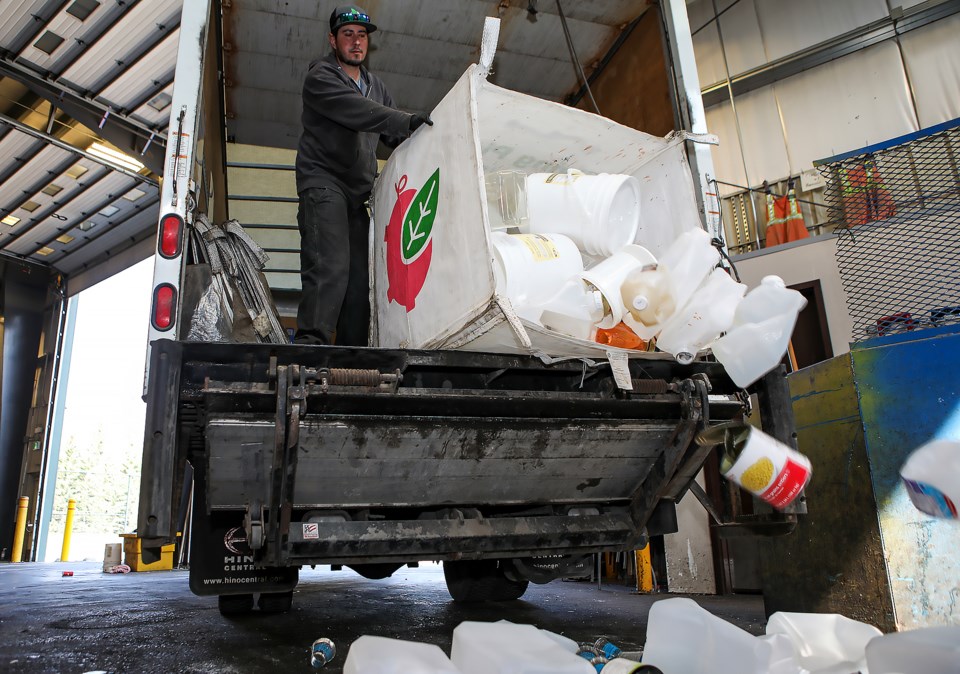CANMORE – An increase in the residential waste rate is on the table for Canmore residents.
The Town’s finance committee is recommending Canmore council approve a yearly increase of $46.08 – or $3.84 a month – for residential waste costs. If approved by council, it would see an increase from $19.77 in 2023 to $22.74 a month in 2024.
Residential recycling would be $18.21 a month in 2024 after being set at $17.34 in 2023, bringing the potential total to $40.95 a month for both recycling and waste collection next year. The cost is a flat rate for all households.
For commercial recycling, the 2024 rates would be $26.58 a month after being set at $25.31 in 2023.
Coun. Tanya Foubert asked municipal staff if more people recycled and composted, would the waste rates be less due to fewer garbage trips being needed.
Andreas Comeau, the Town’s manager of public works, highlighted if that were the case, it would require less financing for waste removal.
“It is certainly a trade-off and ideally we’d like to be spending the monies on processing and transporting recyclables and food waste,” he said.
The potential increase would help cover an estimated $110,000 extra needed to cover garbage hauling, a $28,000 transfer to the Bow Valley Waste Management Commission for a baler and $73,600 to reserves.
The Town of Banff hauls its garbage to West Dried Meat Lake regional landfill in Camrose, which has Canmore pay for part of the contract to have its waste taken at the same time.
However, Comeau said the Town was notified in May that Banff was increasing the rate. He said in August they were informed it would be roughly 20 per cent for an extra $110,000 a year.
Comeau said the Town of Banff is exploring hauling to Calgary, which has more expensive tipping fees, but would see a reduction in greenhouse gas emissions because of shorter travel. Calgary also does methane capture, which Comeau said would reduce GHGs by about 60 per cent.
“We’re really pressing for that and we’re expecting them to come back with that with firmer numbers so we can update the agreement,” he said.
Coun. Karen Marra, who serves as chair of the Bow Valley Waste Management Commission, said the potential energy from waste facility being attempted by the Southern Alberta Energy from Waste Association is still another four or more years out.
The organization was established in 2009 to create a sustainable waste management facility that converts waste into energy. The non-profit group has more than 60 municipalities in southern Alberta.
In 2020, the County of Newell was selected as the potential location for such a facility and work has been progressing to it one day coming into existence. The Durham York Energy Centre was the last such facility built in Canada in 2016.
The Town is also undergoing an audit to see how effective its composting, garbage and recycling are completed by residents and businesses.
The third-party audit analyzed commercial and residential waste to see if more education is needed and if more bins are needed in certain areas.
The last audit in 2016 found food and soiled paper material combined for between 54 and 60 per cent of total waste in the community.
A staff report with results is expected to return to council in the coming months.




